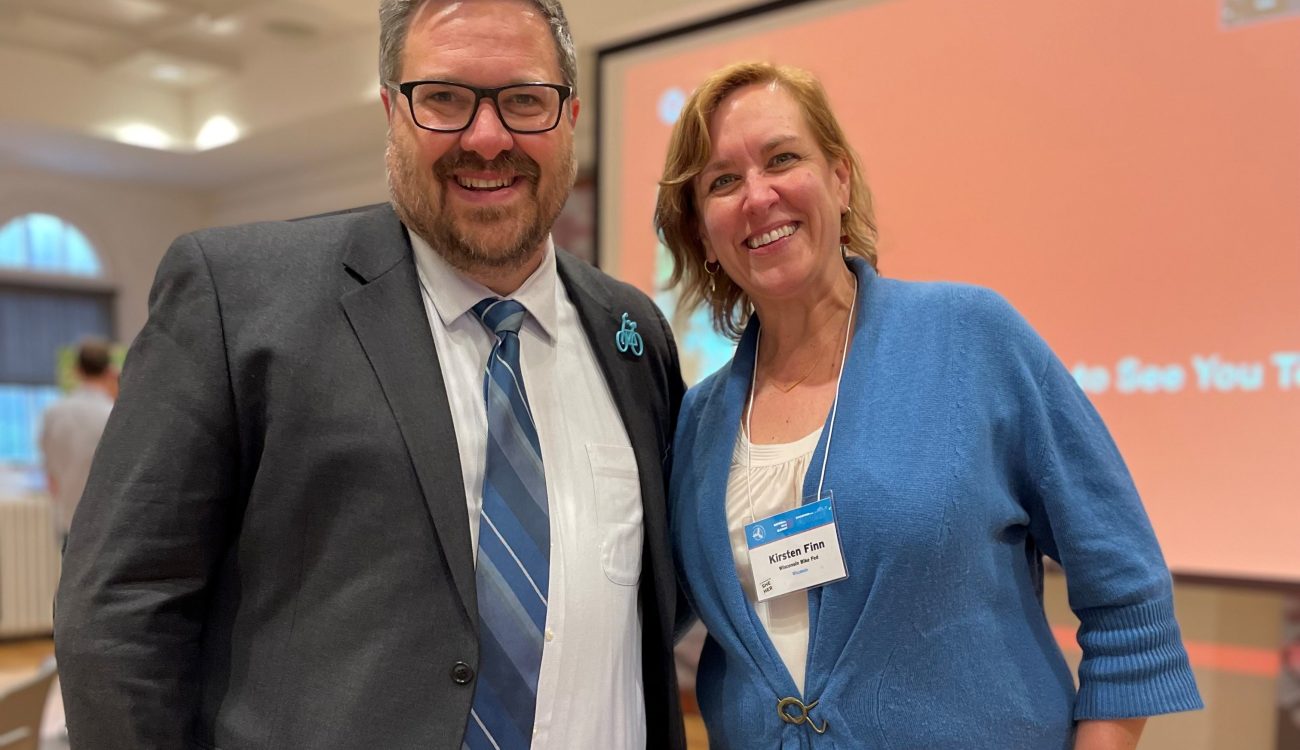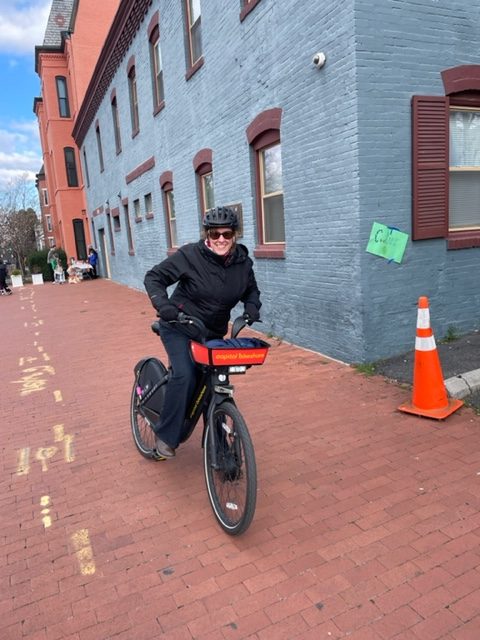
Summit…In Summation
Bike Fed Executive Director Reflects on 2022 National Bike Summit
Executive Director Kirsten Finn traveled to Washington DC at the end of March to attend the League of American Bicyclists 2022 National Bike Summit “Choosing Our Future.” Kirsten attended informational and networking sessions, and represented Wisconsin on Lobby Day to inspire leaders to make important decisions for cyclists.
“The hard part is over, now the really hard part is upon us.” These words of encouragement (?) from United States Transportation Secretary Pete Buttigieg were shared with participants in the National Bike Summit last week. We are living in what Secretary Pete calls “an infrastructure decade”, with historic funding levels for active transportation. The most prominent theme of the National Bike Summit was – now that the Bipartisan Infrastructure Law (BIL) is passed, how do we set about implementing it?
In Wisconsin, this might be a particularly heavy lift. The new program Safe Streets and Roads For All promises $6 billion in funding for programs that make roads that have been designed to prioritize automobiles and vehicle speed feel safe, and actually be safe, for people who are walking, biking, pushing strollers and using wheelchairs. The message from the Federal Highway Administration is that Complete Streets must be the model.
Wisconsin is the only state in the nation that had a Complete Streets policy (adopted in 2009) that was later repealed (in 2017). Now we have some catching up to do to put a Complete Streets policy in place that aligns state and federal priorities.

The Transportation Alternatives Program (TAP) received a 70% increase in available funds – $7.2 billion over and above previous funding levels. In Wisconsin, the TAP program has been frozen at $7.4 million in available competitive grant funding since 2014. With so many other new and increased sources of funding for road and bridge projects, the time has come for Wisconsin to spend the full amount of available TAP funds on actual Transportation Alternatives like bike lanes, trail projects, and public transit.
A bright spot for Wisconsin communities is that the BIL attempts to make accessing funding opportunities easier for applicants, provide funds for technical assistance in developing proposals, and some programs – like Safe Streets and Roads For All – provide funding directly to local governments. According to Buttigieg, “no community should feel too small to take advantage of these resources.”
As always, I encourage local communities wishing to access funds to improve their bike infrastructure to reach out to the Bike Fed for help in connecting to resources. My favorite quote overheard at the National Bike Summit: “People love the idea of a cycling network, they just hate cyclists.” I think they’re just jealous…